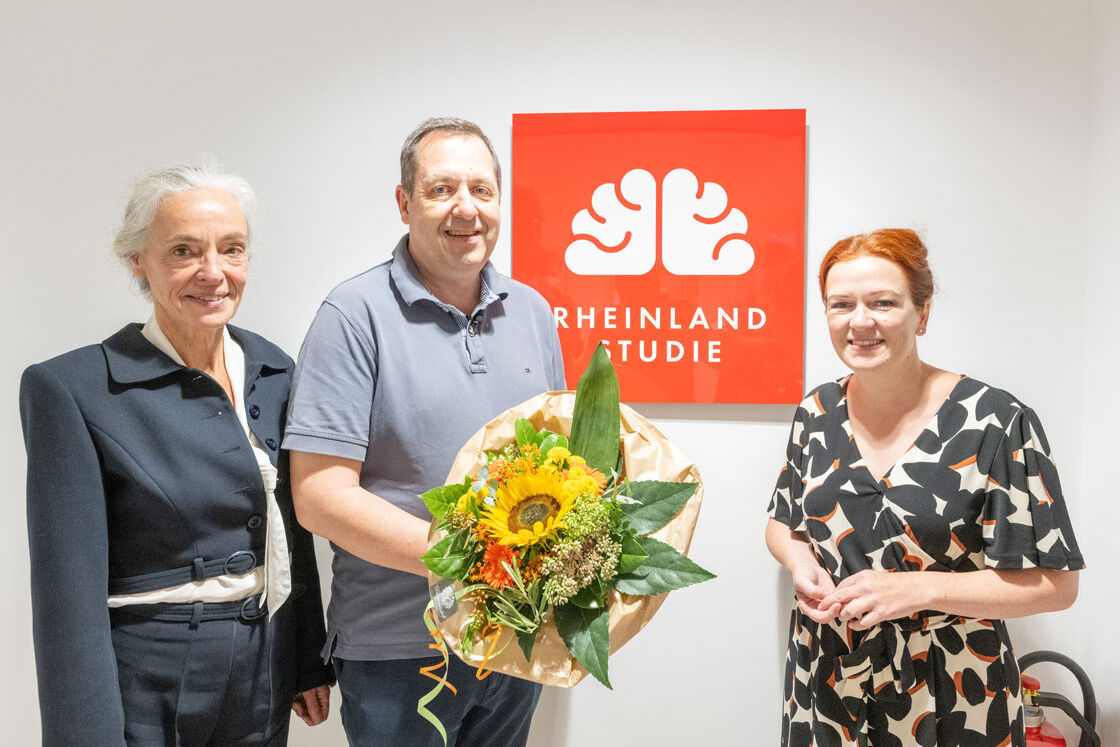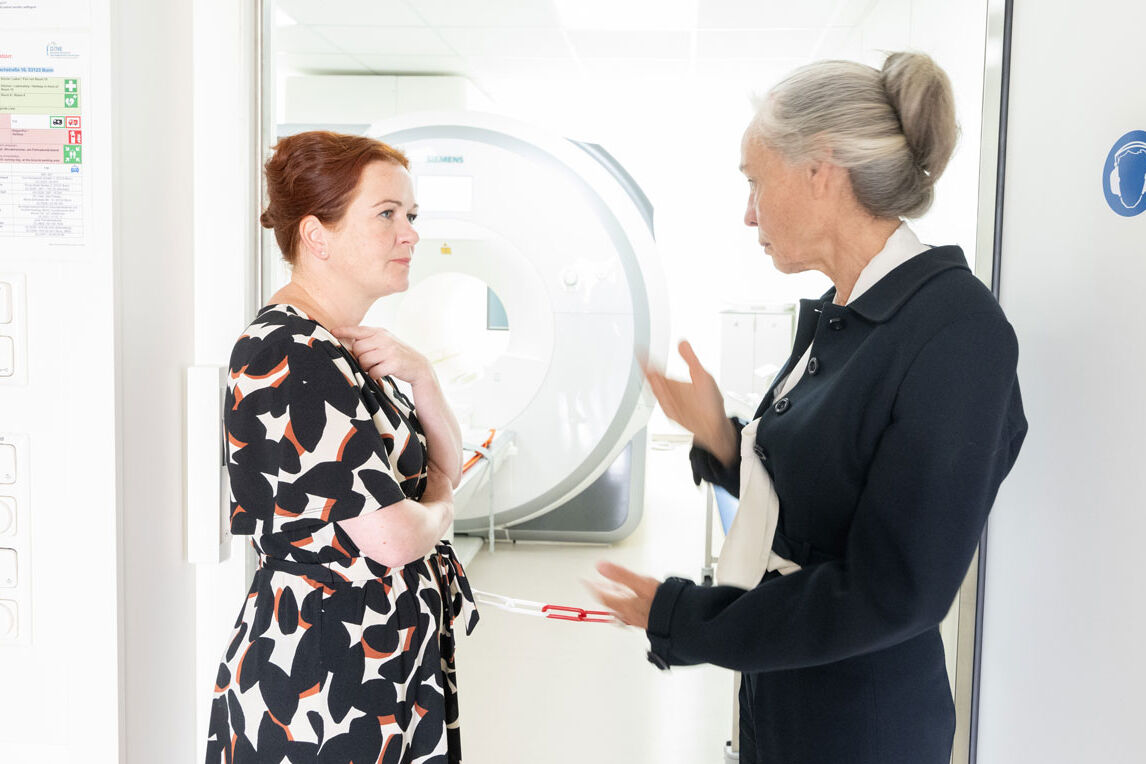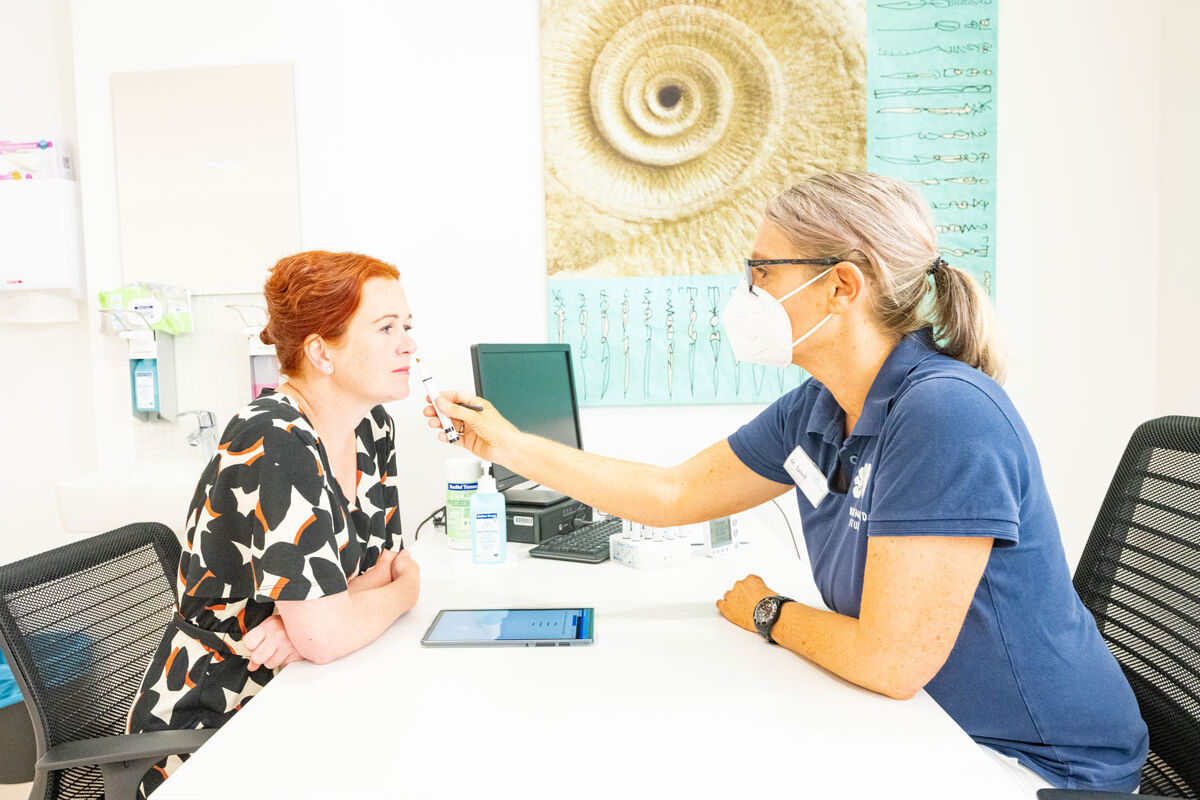Bonn's mayor Katja Dörner visits study center
Bonn, August 30, 2022. Mayor Katja Dörner visited the study center of the Rheinland Study in Bonn Hardtberg today, Tuesday, and welcomed the 10,000th participant. As part of this study, the DZNE is researching factors that influence human health into old age. The study results will contribute to the development of preventive measures of dementia and other age-related diseases.
"We want to help prevent diseases before they develop," says Prof. Dr. Dr. Monique M. B. Breteler, head of the Rhineland Study and director of "Population-based Health Research" at the DZNE. "For diseases of the nervous system such as Alzheimer's, Parkinson's and ALS, there are so far no effective preventive measures and therapies. At the same time, these diseases are becoming more common because they predominantly occur at a later age and general life expectancy is increasing. With the Rhineland Study, we want to decipher the prerequisites for healthy aging so that we not only live longer, but also stay healthy as long as possible."
Ten thousand participants
All people aged 30 and over who live in one of the study areas can take part in the study - regardless of their state of health. A 55-year-old from Röttgen in Bonn has now become the 10,000th participant. He completed the examination program on the same day.
"I am thrilled that the Rhineland Study has so much support from the people of Bonn," Dörner said. "You and the other participants are putting yourselves at the service of the community, and your commitment benefits everyone's health! This cannot be taken for granted and is evidence of a high degree of social responsibility and public spirit. For this, all participants deserve great respect and thanks!" the mayor continued.
Findings to date
In the Rhineland Study, large amounts of medical data are continuously analyzed. In order to do justice to the complex causes of neurodegenerative diseases, various factors, such as genetic background but also lifestyle habits such as diet and activity, must be taken into account in causal research. Research questions that are being investigated using the data from the Rhineland Study focus, for example, on the influence of diet and lifestyle on the brain, on the role of the immune system in relation to general health, or how sophisticated machine learning tools can be used to increase the accuracy and speed of structural and functional imaging of the brain. Results to date suggest, for example, that even regular, light physical activity - such as going for a walk or taking the stairs instead of the elevator - is good for the brain, and that, on the other hand, retinal examinations offer the possibility of detecting brain matter atrophy. Checks of the ocular fundus could therefore support the monitoring of certain neurodegenerative diseases and help to determine the effect of therapies.
"The Rhineland Study is designed to examine participants again and again so that we can follow their health development over years. We are now entering a new phase here, as we start a second round of examinations for the first time in the fall. But there are already interesting results and we hope that more and more people will participate in this project," says Breteler. "In the long term, we want to motivate up to 20,000 Bonn residents to take part. With their support, they can contribute to the health of current and future generations."

![[Translate to Englisch:] [Translate to Englisch:]](/fileadmin/_processed_/5/d/csm_WEB-RS-10000_4425a3b700.jpg)


